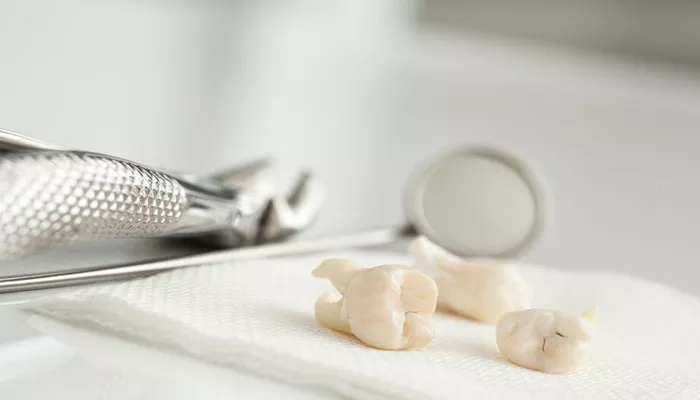Getting your wisdom teeth removed can be a daunting task. Not only do you have to deal with the discomfort and potential complications of impacted teeth, but the cost of dental surgery can be a significant burden. Fortunately, there are options available for individuals who may not have the financial means to pay for this procedure. This article will explore various resources and locations where you can get your wisdom teeth removed for free or at a reduced cost.
What Is Wisdom Teeth?
Wisdom teeth, also known as third molars, usually emerge in late adolescence or early adulthood. For many people, these teeth can cause issues due to lack of space in the jaw. This often leads to impaction, infection, and other dental problems.
Regular dental check-ups can help monitor the growth of these teeth and determine whether extraction is necessary.
The Importance of Removing Wisdom Teeth
Removing wisdom teeth is often recommended to prevent complications. If these teeth are impacted, they can cause pain, crowding, and even infection. Early removal can help avoid more complex procedures later on. However, the cost of surgery can deter many from seeking necessary treatment. Thankfully, several options are available for those in need.
Free or Low-Cost Dental Services
1. Dental Schools
One of the most accessible options for free or low-cost dental care is visiting a dental school. Many dental schools offer reduced-cost services performed by students under the supervision of licensed professionals.
How It Works: Students need hands-on experience, so they often perform extractions at a fraction of the typical cost. You will be evaluated by a dental student and a faculty member, and the procedure will be performed by the student with supervision.
see also: How to Speed up Wisdom Teeth Recovery?
Where to Find Them: Look for accredited dental schools in your area.
For example:
University of Southern California (USC) School of Dentistry: Offers affordable dental services, including wisdom tooth removal.
New York University (NYU) College of Dentistry: Provides a range of dental services, including extractions, at reduced rates.
2. Community Health Clinics
Community health clinics often offer dental services, including wisdom tooth extraction, at little to no cost. These clinics aim to serve low-income individuals and families.
How It Works: Patients may need to provide proof of income or residency to qualify for services. Some clinics operate on a sliding scale based on income.
Where to Find Them:
National Association of Community Health Centers (NACHC): Use their locator tool to find a clinic near you.
Planned Parenthood: Some Planned Parenthood locations offer dental services, including extractions.
3. Nonprofit Organizations
Several nonprofit organizations provide dental care services to those in need. These organizations may offer free dental days or ongoing dental services for low-income individuals.
How It Works: You may need to sign up in advance or meet specific eligibility criteria. These organizations often partner with local dental professionals to provide services.
Where to Find Them:
Dental Lifeline Network: Offers access to dental care for individuals who are elderly, disabled, or medically fragile.
Mission of Mercy: Provides free dental care to those in need during organized events across various states.
4. Local Health Departments
Many local health departments provide dental services as part of their community health programs. They may offer wisdom tooth extraction either for free or at a reduced cost.
How It Works: These services are usually aimed at low-income residents. You may need to provide income verification.
Where to Find Them: Check with your local health department. For example:
Los Angeles County Department of Public Health: Offers dental services, including extractions, for qualifying residents.
Chicago Department of Public Health: Provides dental services for low-income families and individuals.
5. Government Programs
Certain government programs may offer assistance for dental procedures, including wisdom teeth removal.
How It Works: Programs like Medicaid may cover dental extractions for eligible individuals. Each state has different rules regarding dental coverage under Medicaid.
Where to Find Them:
Medicaid: Check your state’s Medicaid program for coverage details. Some states offer comprehensive dental coverage, while others may have restrictions.
6. Dental Charities
Some dental charities offer free dental care events in your community.
These events may provide various services, including wisdom tooth extractions.
How It Works: Typically, you will need to register in advance. Services are provided on a first-come, first-served basis at many events.
Where to Find Them:
America’s Dentists Care Foundation: Organizes free dental care events across the U.S.
Give Kids a Smile: A program that provides free dental care to children, including necessary extractions.
7. Emergency Rooms
In cases of severe pain or infection, emergency rooms can provide temporary relief for wisdom tooth issues. While they may not perform extractions, they can help manage pain and refer you to an oral surgeon.
How It Works: If you have a dental emergency, visit the ER for immediate care. They may prescribe medication and suggest next steps for treatment.
Where to Find Them: Emergency rooms are available at local hospitals.
Tips for Getting Free Dental Care
Research: Take the time to research the options in your area. Use online resources and community boards to find local services.
Contact: Call clinics or organizations in advance to confirm availability, eligibility, and required documentation.
Be Prepared: When visiting any facility, bring necessary paperwork, such as proof of income or identification.
Be Patient: Availability may vary, and some services operate on a first-come, first-served basis. Prepare for potential wait times.
Spread the Word: Inform family and friends about available resources, as they may also benefit from these services.
Conclusion
Having wisdom teeth removed does not have to be a financial burden. Many options are available for individuals seeking free or low-cost dental care. From dental schools and community health clinics to nonprofit organizations and government programs, you can find the help you need. Remember to research and prepare before seeking treatment to ensure a smooth and successful experience.
Related topics:

